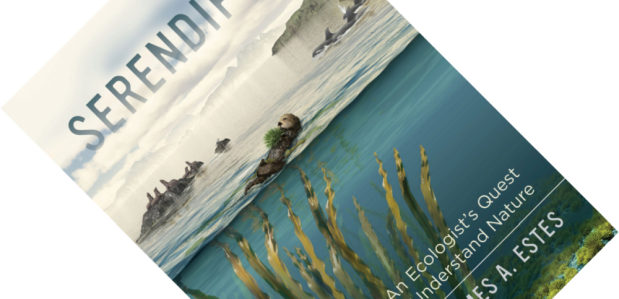Sea otters don’t eat algae. And yet, their diet influences the abundance of seaweed. How? Indirectly. Sea otters eating sea urchins (spiky animals in the same class as sea stars) eating kelp has become a textbook example of a trophic cascade, and Serendipity is a first-hand account by ecologist James A. Estes of how this happened. A trophic cascade refers to the indirect effects that ripple through a food web as a result of, for example, a predator consuming its prey. Simultaneously, the book is a searingly open account of how science is done, how ideas change, and how fortuitous events can suddenly send your research programme off in a whole new direction.

